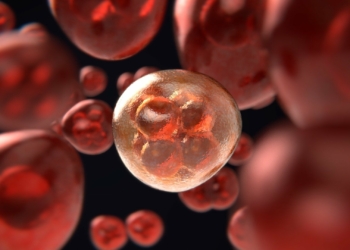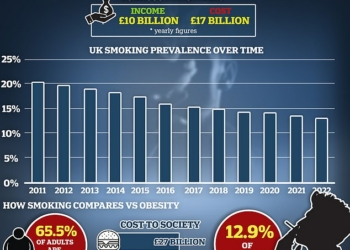
Credit: Pixabay/CC0 Public Domain
The overall risk of myopericarditis following COVID-19 vaccination is very low, affecting 18 people per million vaccine doses. A new study published in The Lancet Respiratory Medicineconfirms that this risk is comparable to or lower following COVID-19 vaccination than other non-COVID-19 vaccines.
The researchers examined international databases, looking at more than 400 million vaccination doses, to compare the risk of myopericarditis following vaccination against COVID-19 and other diseases such as influenza and smallpox. They found no statistically significant difference between the incidence of myopericarditis following COVID-19 vaccination (18 cases per million doses) and other vaccinations (56 cases per million doses).
“Our research suggests that the overall risk of myopericarditis appears to be no different for this newly approved group of vaccines against COVID- 19, compared to vaccines against other diseases. The risk of such rare events should be balanced against the risk of myopericarditis from infection and these findings should bolster public confidence in the safety of COVID-19 vaccinations,” says Dr. Kollengode Ramanathan, a cardiac intensivist at National University Hospital, Singapore, and corresponding author.
Myopericarditis is a condition that causes inflammation of the heart muscle and, in some cases, severe permanent heart damage. It is most often caused by viruses but can also occur after vaccination in rare instances. There have been reports of myopericarditis following mRNA-based COVID-19 vaccination, especially in adolescents and young adults. This study aimed to determine whether this increase in reporting was due to a true increase in incidence or a result of improved reporting systems and recall bias.
Researchers analysed more than 20 studies from international databases with reported incidences of myopericarditis following any type of vaccination between January 1947 and December 2021. Of these, 11 studies looked specifically at COVID-19 vaccinations, covering over 395 million COVID-19 vaccine doses—nearly 300 million of which were mRNA vaccines. The rest of the studies covered other vaccinations such as smallpox (2.9 million doses), influenza (1.5 million doses), and others (5.5 million doses).
The rate of myopericarditis following COVID-19 vaccination was 18 cases per million doses. For all other viral vaccinations combined, the rate of myopericarditis was 56 cases per million doses.
Among COVID-19 vaccinations, the risk of myopericarditis was higher for those who received mRNA vaccines (22.6 cases per million doses) compared to non-mRNA vaccines (7.9 cases per million doses). Reported cases were also higher in people below the age of 30 (40.9 cases per million doses), males (23 cases per million doses), and following the second dose of COVID-19 vaccine (31.1 cases per million doses).
To put the findings into context with the risk of myopericarditis following COVID-19 infection, the authors conducted a post-study analysis. Among 2.5 million patients who were hospitalised with COVID-19, many of whom had clinical or radiological suspicion for myopericarditis, 1.1% had myopericarditis. However, while these figures provide a frame of reference, the authors note that the results are not directly comparable with the number of cases of myopericarditis following COVID-19 vaccination due to different units of measurement.
“The occurrence of myopericarditis following non-COVID-19 vaccination could suggest that myopericarditis is a side effect of the inflammatory processes induced by any vaccination and is not unique to the SARS-CoV-2 spike proteins in COVID-19 vaccines or infection,” says Dr. Jyoti Somani, an infectious diseases specialist at National University Hospital, Singapore, and co-author “This also highlights that the risks of such infrequent adverse events should be offset by the benefits of vaccination, which include a lower risk of infection, hospitalisation, severe disease, and death from COVID-19.”
The authors acknowledge some limitations with this study, particularly noting that the findings include only a small proportion of children under the age of 12 who have only recently been eligible for vaccination, and that results of this study cannot be generalised to this age group. In addition, comparisons have been made across different time periods for different vaccines. Diagnostic tools might have differed or not been available leading to lower reporting of cases in earlier studies.
Writing in a linked comment, Margaret Ryan of the Defence Health Agency and Clinical Professor at the University of California San Diego, U.S., who was not involved in the study, said: “Reports of unexpected adverse events—albeit rare and limited to a select subset of vaccine recipients—have the potential to damage vaccine confidence at a critical point in pandemic response. Like Ling and colleagues, all professionals who have described myocarditis following COVID-19 vaccination have emphasized that benefits of vaccination far outweighs risks in the midst of the current pandemic. Nonetheless, scientific knowledge and public health strategies must continue to evolve. Alternative vaccine platforms, vaccine doses, or vaccine schedules may reduce the risk of rare adverse events following immunization, and must be explored in the context of changing infection risk.”
Study provides more reassuring data on rare heart condition after COVID vaccination
Myopericarditis following COVID-19 vaccination and nonCOVID-19 vaccination: a systematic review and metaanalysis, The Lancet Respiratory Medicine (2022). www.thelancet.com/journals/lan … (22)00059-5/fulltext
Citation:
Myopericarditis following COVID-19 vaccination is rare, finds international study (2022, April 11)
retrieved 11 April 2022
from https://medicalxpress.com/news/2022-04-myopericarditis-covid-vaccination-rare-international.html
This document is subject to copyright. Apart from any fair dealing for the purpose of private study or research, no
part may be reproduced without the written permission. The content is provided for information purposes only.















